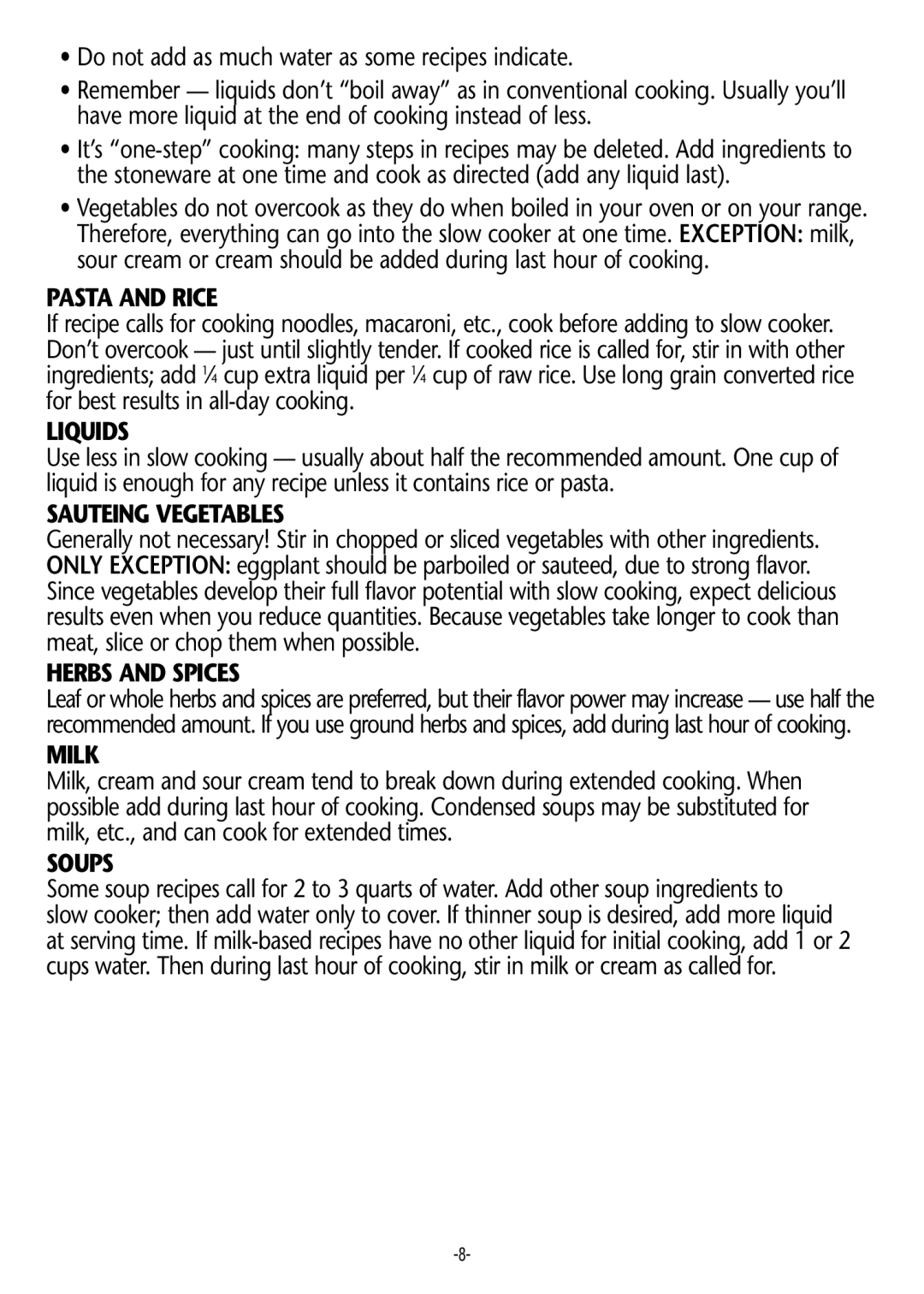•Do not add as much water as some recipes indicate.
•Remember — liquids don’t “boil away” as in conventional cooking. Usually you’ll have more liquid at the end of cooking instead of less.
•It’s
•Vegetables do not overcook as they do when boiled in your oven or on your range. Therefore, everything can go into the slow cooker at one time. EXCEPTION: milk, sour cream or cream should be added during last hour of cooking.
PASTA AND RICE
If recipe calls for cooking noodles, macaroni, etc., cook before adding to slow cooker. Don’t overcook — just until slightly tender. If cooked rice is called for, stir in with other ingredients; add 1⁄4 cup extra liquid per 1⁄4 cup of raw rice. Use long grain converted rice for best results in
LIQUIDS
Use less in slow cooking — usually about half the recommended amount. One cup of liquid is enough for any recipe unless it contains rice or pasta.
SAUTEING VEGETABLES
Generally not necessary! Stir in chopped or sliced vegetables with other ingredients. ONLY EXCEPTION: eggplant should be parboiled or sauteed, due to strong flavor. Since vegetables develop their full flavor potential with slow cooking, expect delicious results even when you reduce quantities. Because vegetables take longer to cook than meat, slice or chop them when possible.
HERBS AND SPICES
Leaf or whole herbs and spices are preferred, but their flavor power may increase — use half the recommended amount. If you use ground herbs and spices, add during last hour of cooking.
MILK
Milk, cream and sour cream tend to break down during extended cooking. When possible add during last hour of cooking. Condensed soups may be substituted for milk, etc., and can cook for extended times.
SOUPS
Some soup recipes call for 2 to 3 quarts of water. Add other soup ingredients to slow cooker; then add water only to cover. If thinner soup is desired, add more liquid at serving time. If
